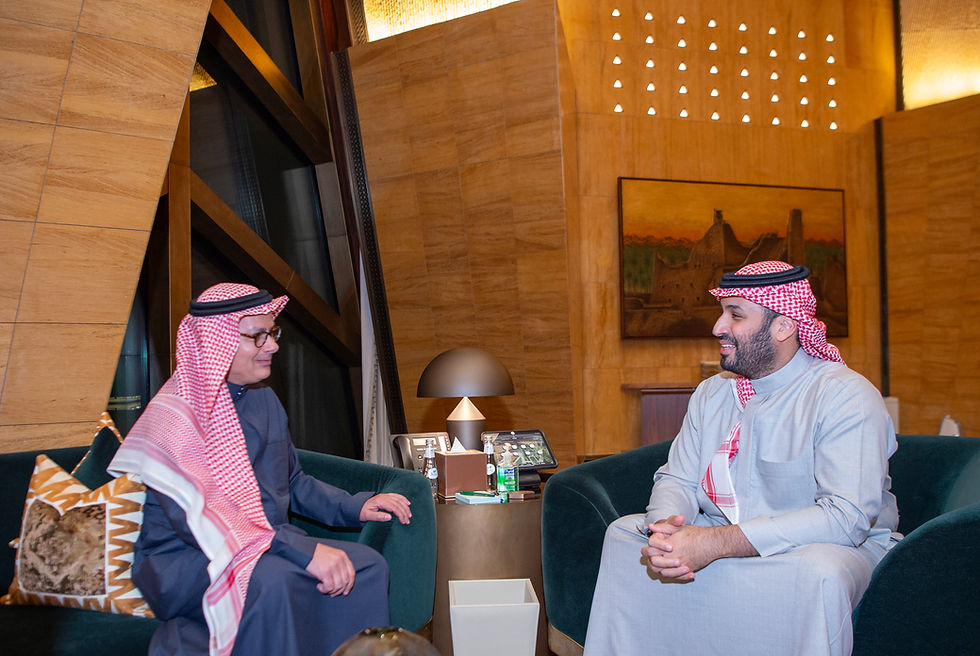Shura Council Completes First Year of Ninth Session with 462 Decisions Covering Health, Education, Economy, and Social Affairs
- SAUDI ARABIA BREAKING NEWS

- Sep 10, 2025
- 3 min read

Riyadh, September 10, 2025 (Saudi Arabia Breaking News) – The first year of the ninth session of the Shura Council was marked by extensive legislative and oversight activity, with the council issuing 462 decisions across multiple sectors, underscoring its role in the Kingdom’s development process.
During 41 sessions lasting more than 120 hours, members made 433 interventions, while specialized committees held 315 meetings and hosted 860 officials from government agencies. The decisions included 180 related to annual performance reports, 50 concerning regulations and bylaws, and 225 addressing agreements and memoranda of understanding. The council also approved five member proposals under Article 23 of its bylaws.
In the health sector, the council called on the Ministry of Health to meet patient safety standards in all hospitals, enhance dental services, expand training in genetic diseases and therapeutic nutrition, and activate early detection programs for cancer and chronic diseases. It also reviewed the performance of the National Center for Mental Health Promotion, the Public Health Authority, and the Saudi Red Crescent Authority, urging the creation of a unified framework for accrediting psychological and social service centers and the inclusion of first aid in school curricula.
On education, the council urged the Higher Education Fund to allocate funding to emerging universities and invest in underutilized assets. It called on the Technical and Vocational Training Corporation to send students abroad for advanced training and expedite accreditation of its facilities. The Ministry of Education was asked to enhance the image of the teaching profession, study variations in student performance, and adopt a strategy to utilize patents and assets.
To stimulate economic growth, the council recommended that the Zakat, Tax and Customs Authority review financial burdens on importers and exporters and expand participation in the Saudi Authorized Economic Operator Program. It urged the Saudi Investment Promotion Authority to support the global expansion of national companies and measure the impact of international events on foreign investment attraction. It also discussed the reports of the Ministry of Investment, the Saudi Export Development Authority, and the General Authority for Competition, issuing directives to support SME exporters and curb anti-competitive practices.
In environmental and social affairs, the council called on the Ministry of Environment, Water and Agriculture to enhance the role of agricultural cooperatives and urged the Saudi Water Authority to strengthen sector capacity. It also reviewed reports from the Family Affairs Council, the Ministry of Hajj and Umrah, and the General Authority for the Care of the Affairs of the Grand Mosque and the Prophet’s Mosque, calling for programs to support families and improve service management at the two holy mosques.
The council urged the Ministry of Transport and Logistic Services to incentivize public transport use and raise Saudization in the sector. It also called on Saudi Arabian Airlines to convert subsidiaries into joint-stock companies and review domestic ticket pricing. The Communications, Space and Technology Commission was directed to improve wireless communications and internet services in public areas and to strengthen digital infrastructure for e-sports.
In sports and culture, the Ministry of Sport was asked to complete stalled projects and enhance governance, while the Saudi Tourism Authority was urged to expand offices abroad. The Ministry of Culture was asked to advance museum displays and academic programs.
The council further recommended that the Ministry of Energy accelerate readiness of factories supporting renewable energy projects and encourage the private sector to establish electric vehicle charging stations. It also urged the Ministry of Industry and Mineral Resources to prioritize national industrial projects and ensure the use of Saudi products in overseas projects supported by Saudi aid.
On urban development, the Ministry of Municipalities and Housing was directed to update city plans, finance housing services, and facilitate licensing of heritage villages.
Regarding the labor market, the Ministry of Human Resources and Social Development was urged to assess new work patterns, develop a professional examination program, expand nursery services to support working families, and accelerate occupational safety standards.
As part of its legislative role, the council approved new or amended regulations in areas including artificial intelligence, statistics, petroleum and petrochemicals, cooperative societies, financial oversight, real estate, intellectual property, sports, education, and care of gifted individuals.


